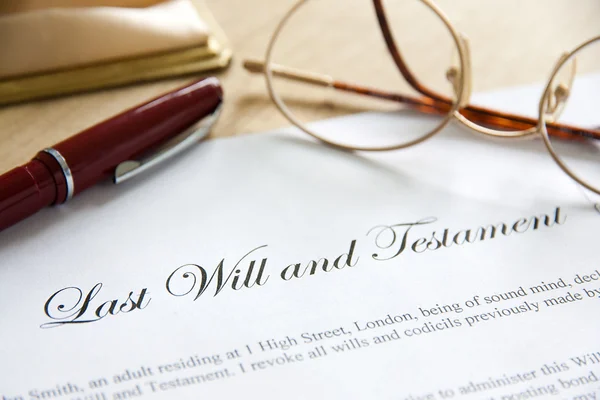Wills & estate
Planning
The Will
This is the document by which you decide who you are leaving your property to after your death.
In this document, you appoint a person to act as your Executor. Your Executor’s responsibility is to gather in all your assets, pay out all your debts, and then distribute what’s left, called the residue, to your loved ones as your desire. In your Will, you decide who in your family and friends get to have your favorite jewelry, Grandma’s china, your power tools, or whatever cash you have. This is also where you specify at what age your beneficiaries receive their gifts.
One of the most important things a will does is to allow you to appoint a guardian for your children. You decide who is going to raise them should you die while they are under the age of eighteen years.
Even if everything you own is jointly held, it is still a good idea to have a will. Having a will doesn’t automatically mean that your family will have to probate it, but it does mean that you have prepared for that possibility.
Why do I need a Will?
Without a Will, the Courts decide who inherits your estate in accordance with intestacy rules, and the Courts decide who raises your children. Any close friends you may have will inherit nothing, unless you leave them a gift in your Will.
Why Should You Use a Wills and Estate Lawyer in Calgary
Hiring Calgary wills and estate lawyers ensures that your estate plan is legally sound and tailored to your specific needs. These professionals provide expert guidance on creating wills, setting up trusts, and designating power of attorney, helping to avoid common pitfalls and ensuring your wishes are carried out. They navigate the complexities of Alberta’s estate and probate laws, minimizing potential conflicts among heirs and maximizing the benefits for your beneficiaries. By working with experienced lawyers, you can secure your legacy and provide peace of mind for you and your loved ones.
What is Probate?
When you pass away with a will, your Executor may apply for a Grant of Probate from the Courts if there is an asset held in your name alone, and cannot otherwise be transferred. Basically, the Court approves the validity of your will such that your Executor can proceed with his or her task of distributing your property in accordance with your wishes. If you own everything jointly with your spouse, then it may be possible to avoid applying for Probate. However, most banks require a Grant of Probate before they will release investment accounts or bank accounts. In some cases, providing the death certificate will suffice.
Why do I need an Enduring Power of Attorney and Personal Directive?
Without an Enduring Power of Attorney and Personal Directive your family is going to be unable to ensure your wishes are followed. If you lose capacity, and haven’t prepared these documents, your family will have to have you declared a Dependent Adult by the Courts, a process that can be lengthy and expensive.
Many people think that if they have joint bank accounts, and hold title to their homes jointly with their spouse, that their spouse will be able to act on their behalf if they lose capacity. This is not true. If you lose capacity, your spouse will be unable to sell your home, or even re-finance the home without your signature, even if you hold it jointly, unless you have an Enduring Power of Attorney. Without an Enduring Power of Attorney, your spouse will have to get you appointed a Dependent Adult before being able to sell or refinance, and this could potentially be a huge issue if one spouse is unable to make the mortgage payments by himself or herself and must go to Court to legally proceed with a sale or a refinance.
The Enduring Power of Attorney
This is a document that allows you to appoint someone to make your decisions for you if you lose capacity for some reason. Loss of capacity may be caused by illness, or an accident. This document lets you decide who gets to act for you regarding your legal and financial matters if you are unable to do so and makes it unnecessary to obtain an Order of Trusteeship under the Dependent Adults Act. The person you appoint, called the Attorney, will be able to deal with your bank accounts, taxes, any legal matters related to your estate, and any property you own.
The Personal Directive
This is the document that allows you to appoint someone to make your personal and medical decisions if you do not have the capacity to do so. This is where you decide what kinds of medical treatment you do or don’t want, and where you decide who you want to make these decisions for you. The person you appoint, called your Agent, will be the person who will be consulted by the doctors, and who will decide where you live if you require long term care. Your Agent will make these decisions based on the directions you leave them in this document.

